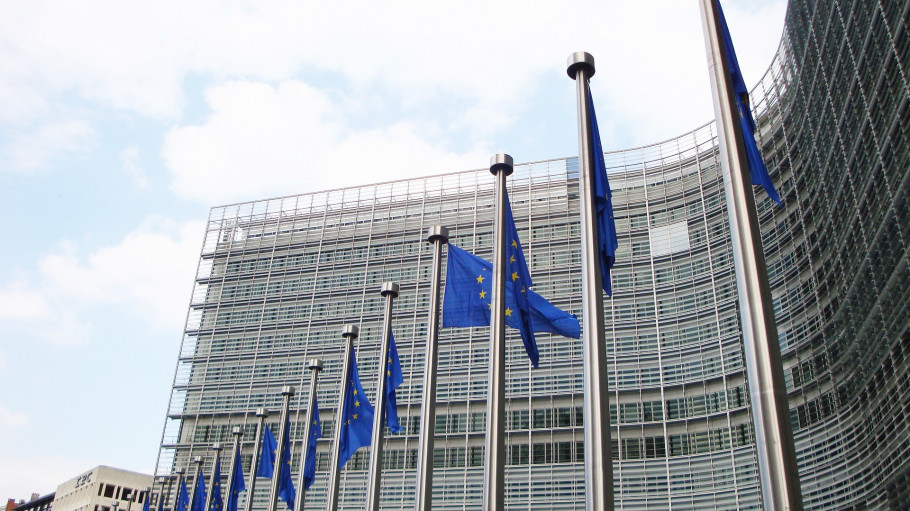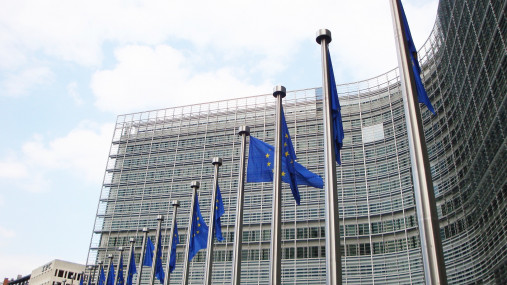
Press releases » EUROFER welcomes leadership of the EU and European Commission in fight against global steel excess capacity
EUROFER welcomes leadership of the EU and European Commission in fight against global steel excess capacity
Downloads and links
Recent updates

Brussels, 28 October 2020 – The EU, along with 29 members of the Global Forum on Steel Excess Capacity (GFSEC), has called upon G20 leaders to address the massive global excess capacity in steel production. This Ministerial Statement comes ahead of the G20 leaders’ Virtual Summit in Riyadh on 21-22 November. EUROFER welcomes the leadership of the EU and the European Commission.
“Even the COVID pandemic did not stop global excess capacity built up in the steel industry. In 2020 new steelmaking capacity is coming online despite existing excess steel capacity around the globe”, said Axel Eggert, Director General of the European Steel Association (EUROFER). “Only the EU has significantly reduced capacity over the past decade, cutting by over 22 million tonnes”.
This trend of reduced production capacity continues in 2020 due to third country steel trade distortions leading to closures and thousands of jobs losses in otherwise competitive, modern, and innovative EU steel companies.
Excess capacity leads to production of steel that is then dumped on global markets – particularly the EU’s – collapsing prices, costing jobs, undermining investment, and unnecessarily harming the environment.
“Work must continue to bring down this massive economic distortion. We, therefore, welcome the guidance and leadership the EU and the European Commission are demonstrating in the Global Forum on Steel Excess Capacity”, added Mr Eggert.
The EU’s call, jointly with the 29 other participating members of the GFSEC forum, comes less than a week after national and regional steel associations, including EUROFER, had urged the GFSEC to expand efforts to address the growing steel crisis.
“The COVID pandemic, and the ensuing public health measures, have caused damage across the global economy. In Europe, steel demand fell 25% in the second quarter of 2020 – and production was, at the peak of the restrictions, halved compared to normal levels. Up to 45% of the European steel workforce was on temporary unemployment or subject to shortened working hours”, added Mr Eggert.
“Meanwhile, other regions of the world continued to produce steel and continued capacity build-ups – volumes which will almost certainly target the EU’s open market once demand again picks up”, emphasised Mr Eggert.
Steel industries around the world have commended the commitments taken by the members of the steel forum to create transparency in regional market and capacity evolutions and review capacity increases based on the agreements expressed in the Tokyo Chair’s Report and recommendations set out in the Berlin and Paris Ministerial reports.
India, Saudi Arabia and China have declined to continue their support for the forum, the Ministerial Statement to G20 leaders notes. Nevertheless, work has continued, expanding on the previous achievements of the forum.
Recognising the challenges facing their steel industries, the 29 Ministers and senior government officials jointly recommend G20 Leaders consider: firmly maintaining the problem of excess capacity on the G20 agenda; promoting the GFSEC principles in tackling the problem; and supporting the GFSEC as a multilateral way forward.
“With the economic effects of the crisis becoming ever clearer, it is more vital than ever that global excess steel capacity is brought under control. EUROFER welcomes the joint call and the EU’s related comments”, concluded Mr Eggert.
Contact
Charles de Lusignan, Spokesperson and Head of Communications, +32 2 738 79 35, (charles@eurofer.be)
About the European Steel Association (EUROFER)
EUROFER AISBL is located in Brussels and was founded in 1976. It represents the entirety of steel production in the European Union. EUROFER members are steel companies and national steel federations throughout the EU. The major steel companies and national steel federations in Switzerland and Turkey are associate members.
The European Steel Association is recorded in the EU transparency register: 93038071152-83.
About the European steel industry
The European steel industry is a world leader in innovation and environmental sustainability. It has a turnover of around €170 billion and directly employs 330,000 highly-skilled people, producing on average 160 million tonnes of steel per year. More than 500 steel production sites across 22 EU Member States provide direct and indirect employment to millions more European citizens. Closely integrated with Europe’s manufacturing and construction industries, steel is the backbone for development, growth and employment in Europe.
Steel is the most versatile industrial material in the world. The thousands of different grades and types of steel developed by the industry make the modern world possible. Steel is 100% recyclable and therefore is a fundamental part of the circular economy. As a basic engineering material, steel is also an essential factor in the development and deployment of innovative, CO2-mitigating technologies, improving resource efficiency and fostering sustainable development in Europe.

Download files or visit links related to this content
Joint Industry Statement
Brussels, 11 February 2026 - The European Steel Association (EUROFER) has backed a call to action adopted by European companies and industries in Antwerp today, which includes a demand on the EU to take urgent action to bring electricity prices down as a condition for Europe’s industrial drive, competitiveness and economic resilience.
The automotive value chain is of vital importance to the EU steel industry and requires an integrated approach to realising the decarbonisation transition in a pragmatic way.